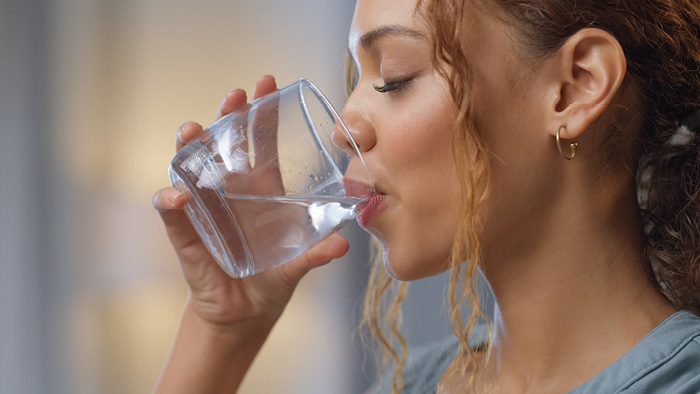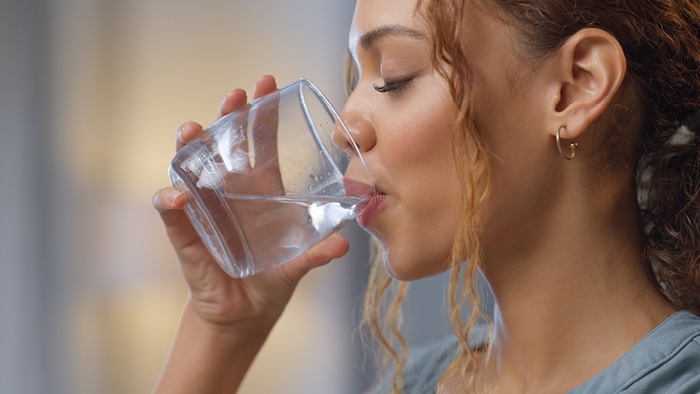Water: Your everyday energy drink
July 20, 2023
As we head into the middle of summer, HSHS St. Francis Hospital wants to remind everyone of the importance of staying well-hydrated.
Jennifer Becker, MS, RD, LDN, clinical dietitian at HSHS St. Francis Hospital, said, "Water is a necessary component of human life. It helps your body function properly, contributes to your overall health and well-being, and can make a real difference in your life if you drink enough each day."
Benefits of drinking water
About 60% of the body is made up of water. It regulates body temperature, lubricates and cushions joints and protects organs. Cells need water to transport nutrients. Wastes and toxins are flushed out through sweat, urine and bowel movements—all of which require water.
Drinking enough water can also affect mental health. Being well-hydrated provides what a person needs to stay alert, focused and productive throughout their day. All of this is why it's so important to replace the fluids lost during activities.
Are you dehydrated?
Dehydration occurs when a person loses more fluids than they take in. Be sure to increase your fluid intake in hot weather, when you increase your physical activity and when you are sick (especially with vomiting, diarrhea or fever). Additionally, drinking alcohol and caffeinated drinks can also cause you to lose water.
Some common signs of dehydration include:
- Extreme thirst.
- Dry or sticky mouth.
- Less sweat than usual.
- Dark-colored urine or no urine at all.
- Dry skin.
- Digestive problems.
- Headaches or dizziness.
Choose water
Many people reach for beverage options like sports drinks to hydrate during or after high-intensity exercise or activities with their added carbohydrates, minerals and electrolytes. Other popular drinks are regular soda, fruit drinks and energy drinks. However, these also contain sugar, calories or caffeine.
Sugary drinks are the leading source of added sugars in the American diet. People who often drink sugary drinks are more likely to face health problems, such as weight gain, obesity, type 2 diabetes, heart disease, cavities, and gout, a type of arthritis.
Becker shared, “Reading the nutrition labels on the drinks you put in your shopping cart can be surprising when you discover how many added sugars are in some of them. Water is the healthiest alternative, as it contains no calories and is 100% natural.”
For example, a 12-ounce regular soda has more than 10 teaspoons of added sugar, adding up to 150 calories. Consuming two sodas a day adds up to 2,100 calories in a week.
Becker recommends the following simple steps to increase your water intake without the added sugar:
- Carry a refillable water bottle with you.
- Set reminders on your phone if you need a nudge to drink throughout the day.
- Choose water when eating out. It saves both money and calories.
- Drink a glass of water before you consume your meal. Besides helping with hydration, it will help you feel fuller so you will eat less.
- Mix up your water options. Try adding fruit slices, like pineapple, watermelon or lemon, or vegetables and herbs, like cucumber or mint. Make flavored ice cubes with 100% fruit juice, unsweetened tea or chopped fruit. Choose seltzer or sparkling water over juices and sugary beverages.
- Don’t forget fluids are in many foods too. Eating water-rich fruits and vegetables, such as melons and tomatoes, can help you stay hydrated.
Sources: Academy of Nutrition and Dietetics; American Diabetes Association; Centers for Disease Control and Prevention; Medline Plus

